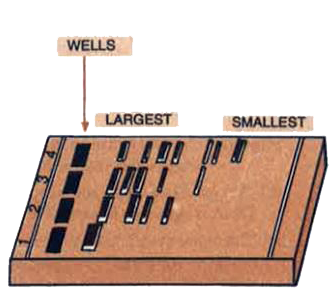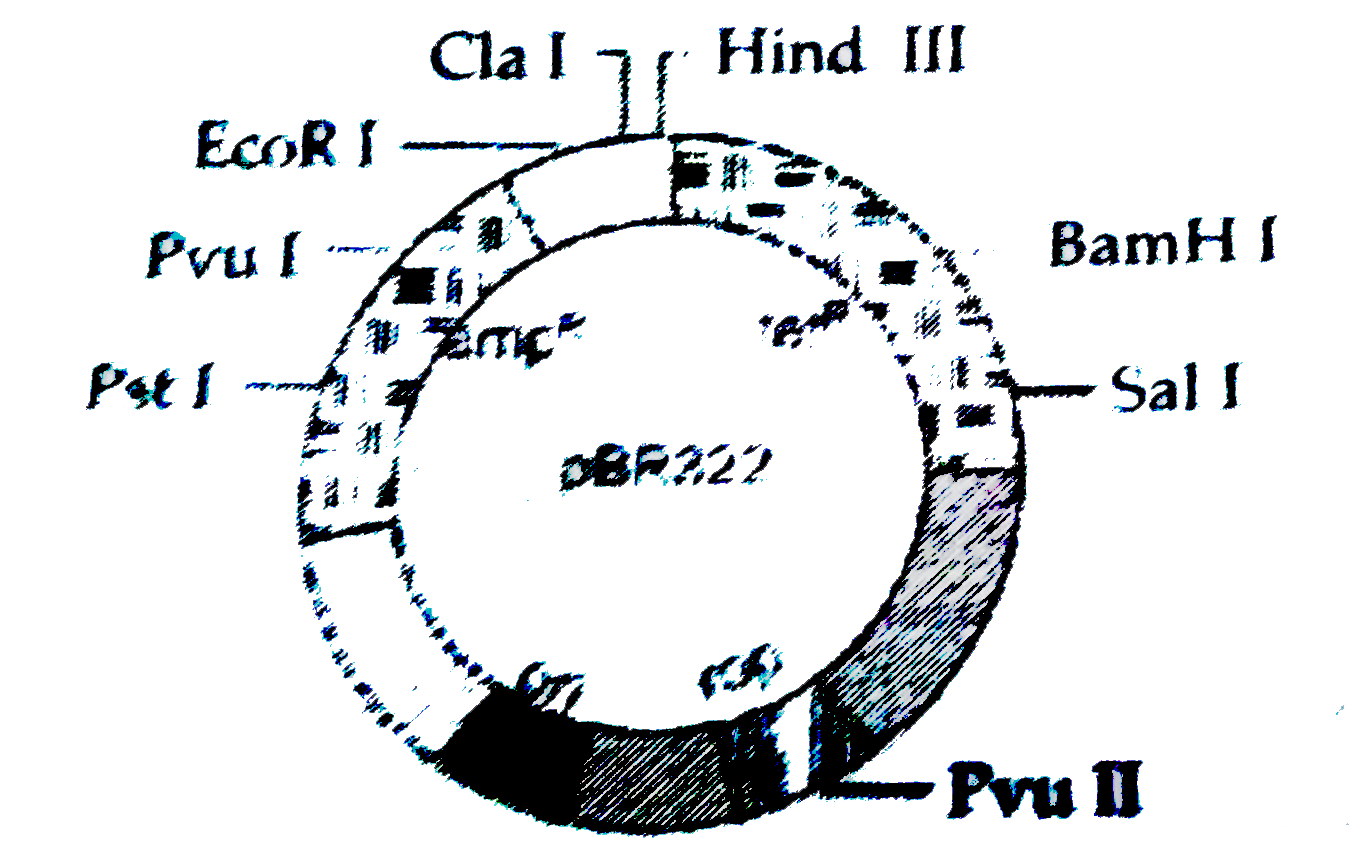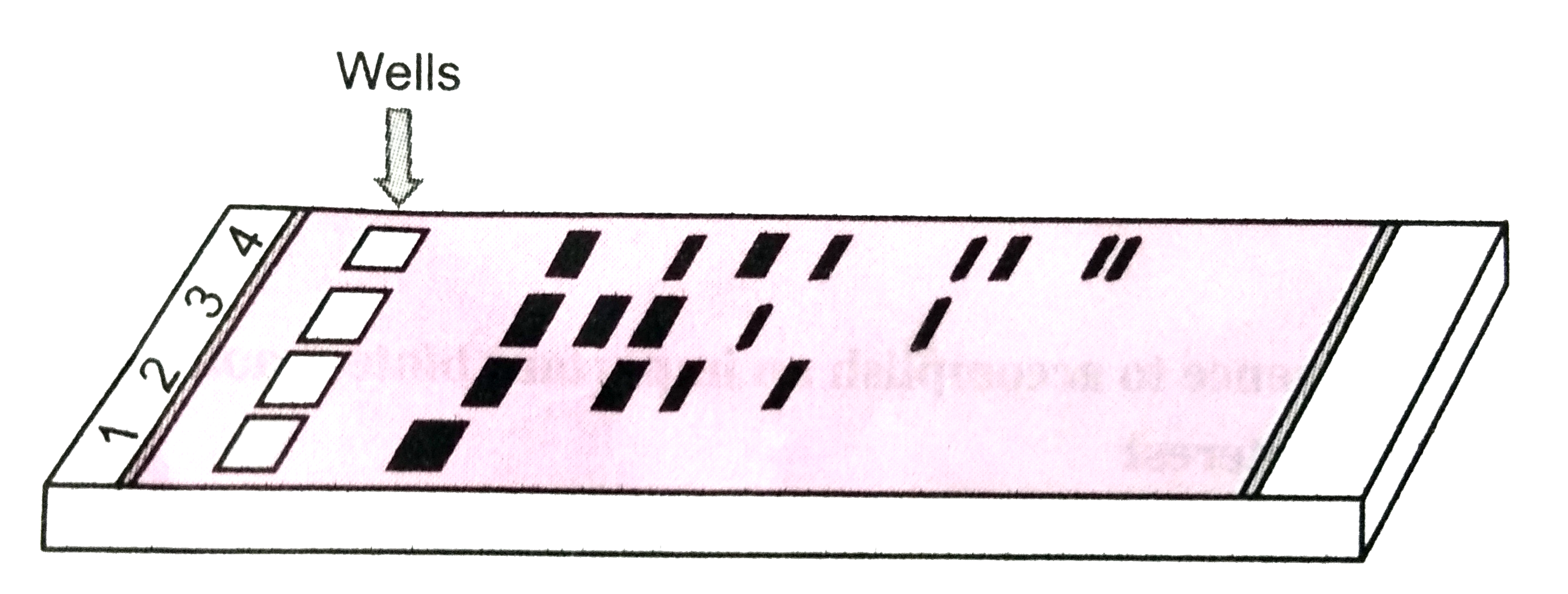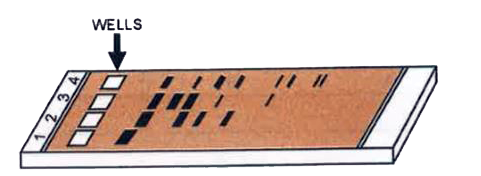Complete Solutions to REVISION EXERCISES (IV. SHORT ANSWER TYPE -II QUESTIONS ( B. QUESTION FROM CBSE BOARD EXAMINATIONS :)) of chapter BIOTECHNOLOGY : PRINCIPLES AND PROCESSES of Class 12 book with complete answers and questions
| Class 12 | BIOLOGY |
| Chapter | BIOTECHNOLOGY : PRINCIPLES AND PROCESSES |
| MODERN PUBLICATION | REVISION EXERCISES (IV. SHORT ANSWER TYPE -II QUESTIONS ( B. QUESTION FROM CBSE BOARD EXAMINATIONS :)) |
| Number Of Questions | 17 |
| Academic Year | 2023-24 |
(a) What does this diagram depict?
(b) What is meant by the largest and the smallest in the picture.
(c) Name the compound used to visualise them.
(d) Define elution

View Solution(i) Name the organism in which the vector shown in inserted to get the copies of the desired gene.
(ii) Mention the area labelled in the vector responsbile for controlling the copy number of the inserted gene.
(iii) Name and explain the role of a selectable marker in the vector shown.

View SolutionDraw a schematic sketch of pBR 322 plasmid and label the following in it:
(a) Any two restriction sites.
(b) Ori and rop genes.
(c) An antibiotic resistant gene.
View SolutionA vector is engineered with three features which facilitate its cloning within the host cell. List the three features and explain each one of them.
View SolutionDiscuss the role, the enzyme DNA ligase plays during DNA replication.
View SolutionExplain enzyme-replacement therapy to treat adenosine deaminase deficiency Mention two disadvantages of this procedure.
View Solution(a) Name the selectable markers in the cloning vector pBR322 ? Mention the role they play.
(b) Why is the coding sequence of an enzyme b-galactosidase a preferred selectable marker in comparison to the ones named above ?
View SolutionDescribe the roles of heat , primers and the bacterium Thermus aquaticus in the process of PCR.
View SolutionExplain the various steps involved in the productin of artifical insulin
View Solution(a) Explain the significance of palindromic nucleotide sequence in the formation of recombinant DNA.
(b) Write the use of restriction endonuclease in the process.
View Solutiona) While cloning vectors, which of the two will be preferred by biotechnologists bacteriophases or plasmids, Justify with reason.
b) Name the first transgenic cow developed and state the improvement in the quality of the product produced by it.
View Solutiona) How do DNA fragments migrate and resolve in a Gel electrophoresis?
b) How lane one is different from lane 2,3 and 4 in the GEL electrophoresis set up?
c) How pure DNA fragments are made observable in the visible light?

View Solution(a) Why must a cell made 'compelent' in biotechnology experiments ? How does calcium ion help in doing so ?
(b) State the role of 'biolistic gun' in biotechnology experiments.
View SolutionWhat is Ori? State its importance during cloning of vector.
View SolutionExplain the importance of 'selectable marker' with the help of suitable example.
View SolutionGiven below is the diagram of agarose gel kept under UV light:

(a) Mention the positive and negative terminals.
(b) What is the charge carried by DNA molecule and how does it help in its separation?
(c) How are the separated DNA fragments finally isolated?
View Solution(a) In pBR322, foreign DNA has to be introduced in `Tet^(R)` region. From the restriction enzymes given below, which one should be used and why: Pvul, EcoRI, BamHI. (b) Give reasons, why the other two enzymes cannot be used.
View Solution
REVISION EXERCISES (IV. SHORT ANSWER TYPE -II QUESTIONS ( B. QUESTION FROM CBSE BOARD EXAMINATIONS :)) questions and complete solutions for chapter BIOTECHNOLOGY : PRINCIPLES AND PROCESSES of MODERN PUBLISHERS BIOLOGY (HINGLISH) of Class 12
All Exercises from MODERN PUBLICATION Class 12 BIOLOGY BIOTECHNOLOGY : PRINCIPLES AND PROCESSES
- Chapter Practice Test ( Section-A)
- Chapter Practice Test ( Section-B)
- Chapter Practice Test ( Section-C)
- Chapter Practice Test ( Section-D)
- Chapter Practice Test ( Section-E)
- COMPETITION FILE ( OBJECTIVE TYPE QUESTION ( A. MULTIPLE CHOICE QUESTIONS ( MCQs):)
- COMPETITION FILE ( OBJECTIVE TYPE QUESTION (B. MATCHING TYPE QUESTION: ))
- COMPETITION FILE ( OBJECTIVE TYPE QUESTION (C. ASSERTION - REASON TYPE QUESTIONS:))
- Higher Order Thinking Skills & Brain Twisting ( Long Answer Questions )
- Higher Order Thinking Skills & Brain Twisting ( Short Answer Questions )
- Higher Order Thinking Skills & Brain Twisting ( Very Short Answer Questions )
- NCERT FILE ( NCERT Exemplar Problem (A. Multiple Choice Questions) )
- NCERT FILE ( NCERT Exemplar Problem (B. Very Short Answer Type Questions ))
- NCERT FILE ( NCERT Exemplar Problem (C. Short Answer Type Questions ))
- NCERT FILE ( NCERT Exemplar Problem (D. Long Answer Type Questions ))
- NCERT FILE ( NCERT Exercise Questions )
- PRACTICE PROBLEM
- Quick Memory Test ( A. Say True or False )
- Quick Memory Test ( B. Complete the missing links )
- Quick Memory Test ( C. Choose the correct alternative )
- REVISION EXERCISES (I. MULTIPLE CHOICE QUESTIONS (MCQs))
- REVISION EXERCISES (II. VERY SHORT ANSWER TYPE QUESTIONS ( A. QUESTION FROM STATE BOARD EXAMINATIONS :))
- REVISION EXERCISES (II. VERY SHORT ANSWER TYPE QUESTIONS ( B. QUESTION FROM CBSE BOARD EXAMINATIONS :))
- REVISION EXERCISES (III. SHORT ANSWER TYPE -I QUESTIONS ( A. QUESTION FROM STATE BOARD EXAMINATIONS :))
- REVISION EXERCISES (III. SHORT ANSWER TYPE -I QUESTIONS ( B. QUESTION FROM CBSE BOARD EXAMINATIONS :))
- REVISION EXERCISES (IV. SHORT ANSWER TYPE -II QUESTIONS ( A. QUESTION FROM STATE BOARD EXAMINATIONS :))
- REVISION EXERCISES (IV. SHORT ANSWER TYPE -II QUESTIONS ( B. QUESTION FROM CBSE BOARD EXAMINATIONS :))
- REVISION EXERCISES (V. CASE-BASED SHORT ANSWER TYPE QUESTIONS)
- REVISION EXERCISES (VI. LONG ANSWER TYPE -II QUESTIONS ( A. QUESTION FROM STATE BOARD EXAMINATIONS :))
- REVISION EXERCISES (VI. LONG ANSWER TYPE -II QUESTIONS ( B. QUESTION FROM CBSE BOARD EXAMINATIONS :))